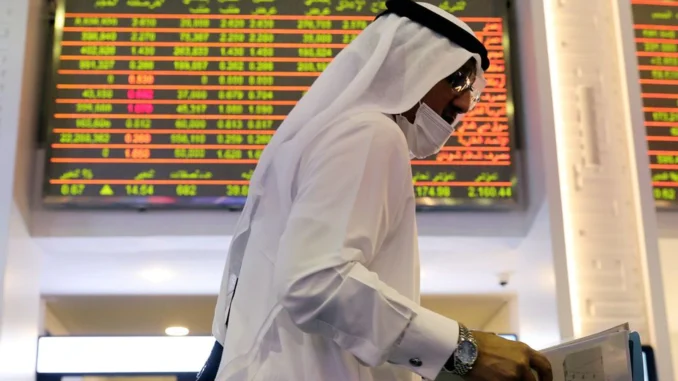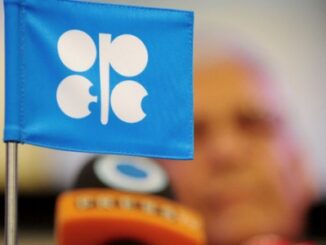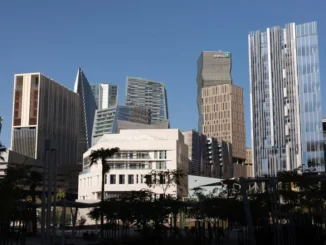
June 13 (Reuters) – Major Gulf bourses declined in early trade on Monday, in line with Asian shares and oil prices as an unexpected spike in U.S. inflation renewed fears over policy tightening and economic growth, while fresh COVID-19 restrictions in China caused concerns over fuel demand.
The U.S. consumer price index increased a bigger-than-expected 8.6% last month, the largest year-on-year increase since December 1981, official figures showed, dashing hopes that inflation had peaked.
Dubai’s main share index tumbled 2.7%, weighed down by a steep slump in financial and real estate stocks.
The emirate’s blue-chip developer Emaar Properties and Sharia-compliant lender Dubai Islamic Bank dropped 4.2% and 2.6%, respectively
In Abu Dhabi, equities declined 1.2%, set to extend losses to a straight ninth session, as the emirate’s largest lender First Abu Dhabi Bank fell 1.2% and conglomerate International Holding Company dropped 0.4%.
Among other stocks, Dana Gas slipped 2.8% after the firm said that it is in active discussion with the Egyptian government to reach a deal on Block 6 North El Arish Concession.
Saudi Arabia’s benchmark index fell 0.4% as Riyad Bank decreased 1.5% and oil behemoth Saudi Aramco eased 0.6%.
The energy index in Saudi Arabia dropped 0.7%.
However, Bupa Arabia jumped 3.9% after the company’s board proposed a capital increase by 300 million riyals ($79.97 million) with the issue of 1 bonus share for 4 shares owned.
The Qatari index eased 0.8%, with the Gulf’s largest lender Qatar National Bank losing 1.2%.
Separately, QatarEnergy signed a partnership deal with TotalEnergies for first and largest phase of a nearly $30 billion expansion of the North Field project.
Source: Reuters.com



